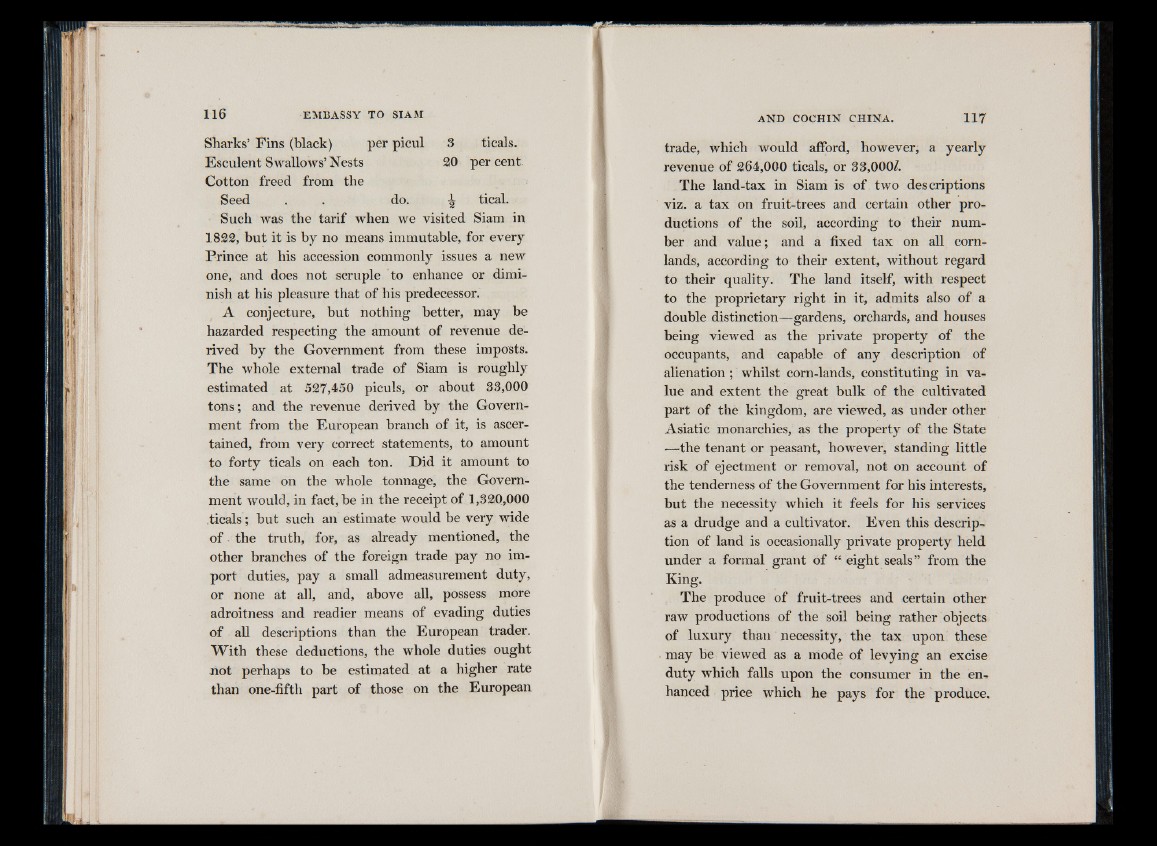
Sharks’ Fins (black) per picul 3 ticals.
Esculent Swallows’Nests 20 percent
Cotton freed from the
Seed . do. \ tical.
Such was the tarif when we visited Siam in
1822, but it is by no means immutable, for every
Prince at his accession commonly issues a new
one, and does not scruple to enhance or diminish
at his pleasure that of his predecessor.
A conjecture, but nothing better, may be
hazarded respecting the amount of revenue derived
by the Government from these imposts.
The whole external trade of Siam is roughly
estimated at 527,450 piculs, or about 33,000
tons; and the revenue derived by the Government
from the European branch of it, is ascertained,
from very correct statements, to amount
to forty ticals on each ton. Did it amount to
the same on the whole tonnage, the Government
would, in fact, be in the receipt of 1,320,000
ticals; but such an estimate would be very wide
of the truth, for, as already mentioned, the
other branches of the foreign trade pay no import
duties, pay a small admeasurement duty,
or none at all, and, above all, possess more
adroitness and readier means of evading duties
of all descriptions than the European trader.
With these deductions, the whole duties ought
not perhaps to be estimated at a higher rate
than one-fifth part of those on the European
trade, which would afford, however, a yearly
revenue of 264,000 ticals, or 33,000/.
The land-tax in Siam is of two descriptions
viz. a tax on fruit-trees and certain other productions
of the soil, according to their number
and value; and a fixed tax on all corn-
lands, according to their extent, without regard
to their quality. The land itself, with respect
to the proprietary right in it, admits also of a
double distinction—gardens, orchards, and houses
being viewed as the private property of the
occupants, and capable of any description of
alienation ; whilst corn-lands, constituting in value
and extent the great bulk of the cultivated
part of the kingdom, are viewed, as under other
Asiatic monarchies, as the property of the State
•—the tenant or peasant, however, standing little
risk of ejectment or removal, not on account of
the tenderness of the Government for his interests,
but the necessity which it feels for his services
as a drudge and a cultivator. Even this description
of land is occasionally private property held
under a formal grant of “ eight seals” from the
King.
The produce of fruit-trees and certain other
raw productions of the soil being rather objects
of luxury than necessity, the tax upon these
may be viewed as a mode of levying an excise
duty which falls upon the consumer in the en-»
hanced price which he pays for the produce.